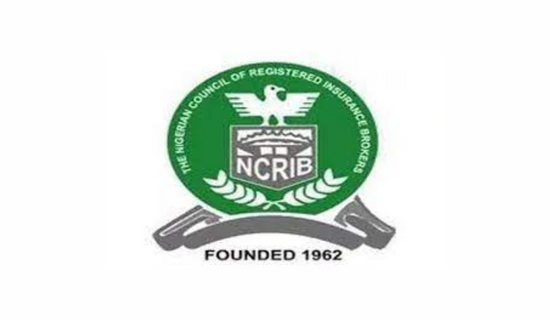The Nigerian insurance broking sector is undergoing a significant transformation, with a strong emphasis on enhancing operational efficiency, regulatory compliance, and ethical conduct. A key driver of this change is the adoption of the Standard Operating Manual (SOM), a comprehensive procedural guide designed to elevate service quality, define roles and responsibilities, and mitigate risks within insurance brokerage firms. The importance of the SOM was underscored at the March 2025 General Meeting of the Nigerian Council of Registered Insurance Brokers Lagos Area Committee (NCRIB-LAC), where industry experts and regulators highlighted its crucial role in shaping the future of the profession. The meeting served as a platform to disseminate information about the SOM, emphasizing its benefits and encouraging widespread adoption among Nigerian insurance brokers.
The SOM is not merely a set of guidelines; it is a strategic tool designed to streamline operations and ensure adherence to best practices. It provides a framework for client management, encompassing aspects such as client onboarding, communication protocols, and handling of client accounts. Crucially, the SOM incorporates Know Your Customer (KYC) compliance procedures, aligning with global anti-money laundering and counter-terrorism financing efforts. Moreover, it addresses sales and policy management processes, ensuring transparency and accuracy in transactions. By adhering to the SOM, brokerage firms demonstrate their commitment to regulatory compliance, particularly with the Insurance Act, fostering trust and credibility within the industry.
The benefits of implementing the SOM extend beyond individual firms, impacting the entire insurance ecosystem. By promoting consistency in operations, the SOM reduces ambiguity and enhances clarity in the delivery of services. This, in turn, strengthens consumer protection by establishing clear expectations and minimizing the potential for misunderstandings or disputes. Furthermore, by establishing standardized procedures, the SOM supports business continuity planning, enabling firms to navigate unforeseen challenges and maintain operational resilience. The SOM also serves as a valuable training resource, providing a structured approach to onboarding new employees and ensuring consistent application of best practices.
The NCRIB-LAC, as a key stakeholder in the Nigerian insurance broking sector, has taken a proactive stance in promoting the adoption of the SOM and upholding ethical standards. The committee recognizes the vital role of insurance brokers in connecting clients with suitable insurance products and providing expert advice. By emphasizing ethical conduct and adherence to regulatory frameworks, the NCRIB-LAC aims to elevate the professionalism of the industry and enhance public trust in insurance brokers. This commitment to ethical practices is further reinforced through initiatives such as the Insurance Teachers’ Training Programme, which aims to equip future generations of insurance professionals with the knowledge and skills necessary to navigate the complexities of the industry.
The call for adoption of the SOM comes amidst a backdrop of increasing regulatory scrutiny and evolving customer expectations. As the insurance landscape becomes more complex, brokers are expected to demonstrate a higher level of professionalism and expertise. The SOM provides a roadmap for achieving this, enabling brokers to navigate regulatory requirements, manage risks effectively, and deliver superior client service. By embracing the SOM, Nigerian insurance brokers can position themselves for success in a competitive market and contribute to the sustainable growth of the insurance sector.
The March 2025 General Meeting of the NCRIB-LAC served as a pivotal moment in the journey towards professionalizing the Nigerian insurance broking sector. The emphasis on the SOM, ethical conduct, and continuous professional development underscores the industry’s commitment to raising standards and providing clients with the highest level of service. By embracing these principles, Nigerian insurance brokers can solidify their role as trusted advisors and contribute to the long-term growth and stability of the insurance industry. The recognition and reward of participants in the Insurance Teachers’ Training Programme further reinforces the importance of investing in education and development to build a robust and sustainable insurance ecosystem.


